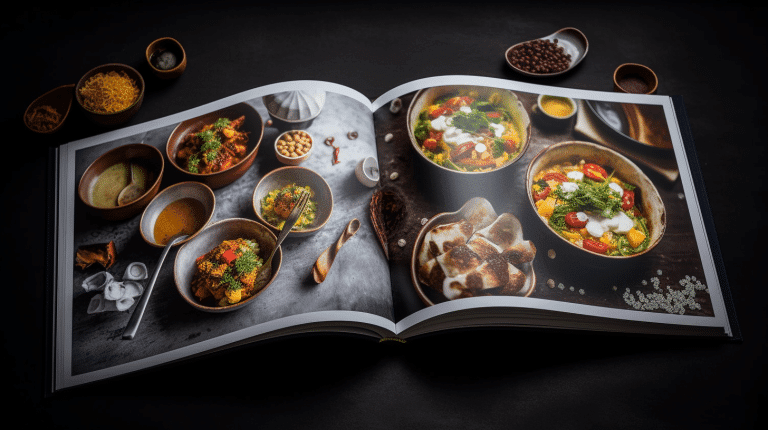আরবি পনির রুটি - বাড়িতে তৈরি আনন্দের জন্য বিশেষজ্ঞ গাইড
Arabic cheese bread, also known as Akkawi Manakeesh, is a delightful savoury treat that is popular throughout the Arabian Peninsula. Originating from Saudi Arabia, this cheese-infused flatbread is enjoyed in every bakery and home due to its versatility and delicious taste.
Made with a base of soft dough that melts in your mouth and topped with a scrumptious mixture of cheeses, this dish offers a wonderful combination of flavours and textures to satisfy your taste buds.
Traditional Akkawi Manakeesh uses a combination of Akkawi cheese, as the name suggests, and other regional cheeses for an authentic taste.
However, several variations now exist, including popular options like mozzarella, halloumi, and feta, which provide a balance of salty and neutral flavours. Whether served as an appetiser, snack or accompanied by tea-time, this cheese bread has become an integral part of মধ্যপ্রাচ্য culinary culture.
To prepare Arabic cheese bread, start with a basic dough made from yeast, flour, salt, sugar, and water. Once your dough has risen and is ready to shape, spread the cheese mixture of your choice on top, then bake until it achieves a golden-brown crust.
Enjoy the warm, slightly crispy bread dipped in olive oil or topped with fresh vegetables, and experience a taste of the Middle East no matter where you may be.
Understanding Arabic Cheese Bread
Arabic cheese bread, commonly known as Akkawi Manakeesh, is a delicious flatbread that is very popular in Saudi Arabia and the Middle East.
This savoury and scrumptious bread is typically made with simple ingredients, which include all-purpose flour, water, dry yeast, salt, sugar, vegetable oil, and the star ingredient – Akkawi cheese. Nigella seeds are often sprinkled on top to enhance the flavour and appearance of the bread.
To make Arabic cheese bread, you will start by preparing the dough, which involves mixing lukewarm water with dry yeast, followed by the addition of flour, salt, sugar, and vegetable oil. This mixture is then kneaded until a smooth dough is formed.
To allow the dough to rise, you should let it rest for about 2 to 3 hours, depending on the outside temperature and humidity levels.
After the dough has risen sufficiently, you can start assembling your cheese bread. You divide the dough into even portions and roll them flat. Then, add a generous layer of grated or crumbled Akkawi cheese on top of each dough before folding and sealing the edges.
Optionally, you may sprinkle nigella seeds on the surface of the dough for added flavour and visual appeal.
When it comes to baking, a pre-heated oven is essential. You can bake your cheese bread at around 180°C (350°F) for about 15 to 20 minutes, or until the crust is golden brown and the cheese is beautifully melted.
Akkawi Manakeesh can be enjoyed as a snack, appetiser, or even as a delightful breakfast dish. The bread is versatile, and you can try different variations using other types of cheese or adding herbs and spices to suit your taste preferences.
Additionally, Arabic cheese bread is often served alongside fresh vegetables, olives, or pickles, further enhancing the overall eating experience.
Ingredients for Arabic Cheese Bread
In this section, we will discuss the essential components of Arabic cheese bread, focusing on two critical parts: the dough and the cheese filling.
The Dough
The foundation of Arabic cheese bread is a simple Middle Eastern bread dough. To make this dough, you will need the following ingredients:
- 500g all-purpose flour
- 10g salt
- 7g sugar
- 15g active dry yeast
- 300ml warm water
- 30ml olive oil
To prepare the dough, first, dissolve the yeast in the warm water, allowing it to activate for about 5 minutes. Then, mix the flour, salt, and sugar in a large bowl. Gradually pour the activated yeast water and olive oil into the dry ingredients, stirring well to bind.
Knead the dough for about 5 to 10 minutes to develop gluten. Let the dough rise for about 2 hours 30 minutes, or until it has doubled in size.
The Cheese Filling
The cheese filling is what gives the Arabic cheese bread its distinct flavour and texture. For a traditional cheese mixture, combine the following ingredients:
- 250g Akkawi cheese, grated (you may substitute with mozzarella or a mix of mozzarella and feta)
- 1/2 tablespoon nigella seeds (optional)
- 1/2 tablespoon sesame seeds (optional)
To prepare the cheese filling, simply mix the grated cheese with the optional nigella and sesame seeds. Then, preheat your oven to 200°C (392°F).
After your dough has risen, divide it into 8 equal portions. On a floured surface, roll each portion into a flat, round shape about 5mm thick. Spread the cheese filling evenly over each dough circle, leaving a small border around the edge to allow for any cheese expansion.
Bake the Arabic cheese bread for about 20 minutes, or until the cheese is melted and the edges are golden brown.
Now that you have the ingredients and instructions for both the dough and cheese filling, you are ready to create your own delicious Arabic cheese bread. Enjoy as a snack, appetiser, or breakfast dish!
Preparation Steps
Before you begin, gather the following ingredients for your Arabic cheese bread:
- Warm water and yeast to activate the dough
- Flour, salt, and sugar as basic dry ingredients
- Oil to mix with the dough
- A combination of cheeses, such as mozzarella, parmesan, halloumi, or feta
Step 1: Activate the yeast by stirring it into warm water, and let it sit for 5 minutes or until it starts to bubble up.
Step 2: Combine the flour, salt, and sugar in a large mixing bowl. Gradually pour the yeast water and oil into the dry mix while stirring well to bind the ingredients together.
Step 3: Knead the dough for 5 to 10 minutes. You may need to adjust the amount of water or flour to achieve the right consistency. The dough should be smooth and elastic.
Step 4: Rest the dough for 30 minutes to an hour; this will allow it to rise and become easier to work with. Preheat your oven to 450 F (230 C).
ধাপ 5: Divide the dough into four equal-sized pieces. On a floured surface, roll each piece into a disc about 10 inches (25 cm) in diameter.
Step 6: Prepare your choice of cheese combination. Drain any excess moisture from the cheese (especially important if using Akkawi or Halloumi) and evenly sprinkle it over the dough.
Step 7: Bake the cheese bread in the preheated oven for 12-15 minutes, or until the cheese is melted and the bread is golden brown. Keep an eye on the oven to ensure it doesn’t overcook. Remove the bread from the oven and allow it to cool slightly before serving.
Keep in mind that you can get creative with your toppings and try different combinations of cheeses, and herbs, or even add some za’atar or tomato-onion mixture for a more flavourful experience. Enjoy your Arabic cheese bread!
পরামর্শ পরিবেশন
When it comes to enjoying your Arabic cheese bread, there are various ways to serve and relish this delicious treat. Here are some suggestions on how to make the most of your cheesebread experience.
Firstly, you can enjoy Arabic cheese bread, such as Akkawi Manakeesh, as a delightful appetiser. Cut the freshly baked flatbread into smaller pieces, and serve it with a side of olives, pickles, or fresh vegetables.
This will create a lovely contrast of textures and flavours, allowing you to have a fuller-tasting experience.
Another way to serve your cheese bread is as part of a Middle Eastern breakfast spread. Alongside dishes like hummus, labneh, and fresh fruit, the cheese bread will add a scrumptious savoury option that complements the other elements of the meal.
Additionally, a cup of strong, hot Arabic tea or coffee would pair wonderfully with the cheese bread, bringing warmth and intensity to your morning meal.
Moreover, you can use the Arabic cheese bread as the base for a delightful sandwich. Stuff the flatbread with grilled vegetables, salads, or various meats for a wholesome and filling lunch option. Feel free to get creative with your fillings to personalise your cheese bread sandwich.
Finally, consider serving your Arabic cheese bread warm and accompanied by a dipping sauce.
A tangy yoghurt sauce, a flavour-packed tahini dressing, or even a simple drizzle of high-quality olive oil and za’atar can all enhance the overall taste and texture of the cheese bread. Experiment with different combinations to find your favourite pairing.
In summary, there are many ways to serve and enjoy Arabic cheese bread, making it a versatile and delightful addition to any meal.
সাংস্কৃতিক তাৎপর্য
Arabic cheese bread, known as manakish, holds a special place in Middle Eastern culinary traditions. As a staple food in many Arab countries, it serves as a symbol of togetherness, community, and shared history. While enjoying this delicious delicacy, you are participating in a cherished cultural practice that has persisted for generations.
In the Middle East, bread is not just a component of meals; it represents life itself.
Manakish, a dough-based food topped with various ingredients, is a versatile dish that can be enjoyed at any time of day. Having it at breakfast or lunch, paired with your favourite beverage, offers an authentic taste of Arab hospitality and warmth.
The preparation of manakish itself is a social activity, as family members often gather to knead the dough, mix the cheese with traditional spices, and bake the bread in communal ovens. This collaborative process fosters a sense of community and connection, qualities that remain integral to the Arab way of life.
Lastly, it’s important to note that Manakish symbolises the rich and diverse culinary heritage of the Arab region. With each different topping or cheese variety, you are introduced to the unique flavours and ingredients that have shaped this cuisine.
In partaking in this timeless and delicious tradition, you continue to contribute to its enduring cultural legacy.
Variations of Arabic Cheese Bread
Arabic cheese bread, also known as manakish, is a versatile and delicious dish that can be customised to suit different tastes. In this section, we will explore a few popular variations of this Middle Eastern favourite that you can try at home.
One variation of Arabic cheese bread is the cheese manakish. This version uses a simple all-purpose dough topped with a combination of cheese and nigella seeds, making it a great option for a tasty snack, appetizer, or even breakfast. All you need is just 7 ingredients and 20 minutes of hands-on preparation.
Another popular variation is Akkawi Manakeesh. This type of cheese bread incorporates akkawi cheese, a soft, salty cheese common in Middle Eastern cuisine.
To make Akkawi Manakeesh, you will need to prepare a dough using flour, salt, sugar, warm water, yeast, and oil. Once the dough is ready, simply roll it out, top it with the akkawi cheese and nigella seeds, and bake until golden and delicious.
If you’re looking for something with a bit more zest, you might enjoy the zaatar manakish. This option incorporates zaatar, a Middle Eastern spice blend made with sumac, thyme, sesame seeds, and salt.
To make zaatar manakish, create a dough as you would for the Akkawi version, then divide it into equal balls. Flatten each ball, top with zaatar, and bake on parchment-lined baking sheets.
It’s worth noting that cheese breads can be enjoyed with various toppings, including:
- Herbs like mint, parsley, or coriander.
- Sliced vegetables, such as tomatoes, cucumbers, or onions.
- Olives or pickles for a tangy touch.
- Various types of cheeses, such as mozzarella or feta.
By exploring these variations of Arabic cheese bread, you’ll not only expand your culinary horizons but also find new, delicious ways to enjoy this popular Middle Eastern dish.
স্বাস্থ্য সুবিধাসমুহ
Arabic cheese bread, also known as cheese manakish, offers several health benefits to add value to your meal. It is not only delicious but also nutritious, making it a great addition to your diet.
Firstly, the bread itself is made from simple ingredients like flour, water, and olive oil. Olive oil is rich in healthy monounsaturated fats, which may support heart health and help lower bad cholesterol.
By using olive oil in the dough, the bread gains a boost in its nutritional profile. Plus, it does not contain any artificial additives or preservatives, making it a wholesome choice compared to processed bread.
The cheese used in Arabic cheese bread is typically a blend of Akkawi and Nabulsi cheese, both of which originate from the Middle East.
These types of cheese are rich in protein, calcium, and phosphorus, which are essential for maintaining strong bones and teeth. Additionally, they contain probiotics that facilitate a healthy gut and immune system.
Arabic cheese bread can also be adapted to include vegetables such as spinach or herbs like zaatar, which further enhance its nutritional value. Adding vegetables increases the content of vitamins, minerals, and dietary fibre, while herbs like zaatar provide both antioxidants and anti-inflammatory properties.
To summarise, Arabic cheese bread offers a variety of health benefits:
- Rich in healthy monounsaturated fats from olive oil
- Contains protein, calcium, and phosphorus from cheese
- Free from artificial additives and preservatives
- Can be customised with vegetables and herbs for extra nutrition
Bear in mind that moderation is key, and it is important to consume Arabic cheese bread as part of a balanced diet. By incorporating this tasty and nutritious treat into your meals, you can enjoy both the delicious flavours and health advantages it has to offer.
Common Mistakes
When preparing Arabic cheese bread, specifically Akkawi Manakeesh, you might encounter a few common mistakes. By being aware of these pitfalls, you can avoid them and create a delicious cheese bread to enjoy.
Incorrect Yeast Activation:
One common mistake is not activating the yeast properly. To avoid this, always use lukewarm water—not too hot nor too cold—and give the yeast time to dissolve and bubble up. Remember to add sugar, as it acts as food for the yeast and helps it activate.
Inadequate Kneading:
Another issue that can affect the final texture of your Arabic cheese bread is not kneading the dough sufficiently. Kneading allows the gluten to develop, resulting in a soft and elastic dough. When making Manakeesh, ensure you knead the dough for at least 10-15 minutes or until it becomes smooth and elastic.
Insufficient Dough Resting Time:
Letting the dough rest is essential for its texture and flavour development. During this process, the yeast ferments the dough, producing a delightful flavour and allowing it to rise. Allow the dough to rest and double in size before proceeding with shaping and baking.
Over- or Under-baking:
To achieve a perfectly baked Manakeesh, monitor the bread closely in the oven. You want it to be golden brown and slightly crispy on the outside while keeping the inside soft. Over-baking can result in dry, hard bread while under-baking might leave the cheese under-melted or the dough soggy.
By considering these common mistakes and taking the necessary precautions, you can ensure a successful and delicious Akkawi Manakeesh – a crowd-pleasing Arabic cheese bread for you and your guests to enjoy.
Arabic Cheese Bread – Conclusion
In summary, Arabic cheese bread, also known as Manakeesh, is a popular and versatile dish found in মধ্যপ্রাচ্যের খাবার. It can be enjoyed at any time of the day, as a snack, appetiser, or even breakfast.
Made with simple dough and various cheese toppings, this delightful flatbread offers a delicious and satisfying experience for your স্বাদ কুঁড়ি.
If you decide to try your hand at making your Arabic cheese bread, you’ll find that the process is relatively straightforward.
Ideally, having a selection of cheeses like Akkawi and za’atar will give your bread an authentic flavour profile. Additionally, incorporating nigella seeds into the recipe contributes to both texture and taste, yielding a dish that is enjoyable for all.
As you explore different variations of Arabic cheese bread, don’t hesitate to experiment with other ingredients and flavours to suit your personal preferences.
The basic dough recipe provides an excellent canvas for creativity. Whether you enjoy it as a savoury treat or paired with tea or coffee, Arabic cheese bread remains a cherished delight within Middle Eastern cuisine, and now, in your kitchen.







